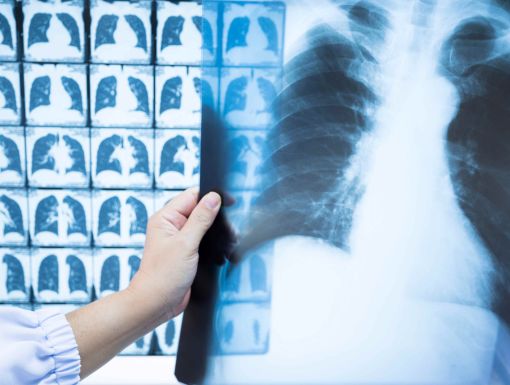
Esophageal Cancer Symptoms: 7 Things to Look For
Esophageal cancer is a type of cancer that grows in the esophagus, the hollow tube that connects your throat to your stomach.
The esophagus is behind the trachea, or windpipe, and in front of the spine. You probably don’t think much about your esophagus until something doesn’t feel right.
Early signs of esophageal cancer
Esophageal cancer can start anywhere along the esophagus, but usually starts in the inner layer of the esophagus wall and grows outward. Many people with esophageal cancer do not have symptoms in the beginning.
The American Cancer Society estimates about 22,000 new cases of esophageal cancer will be diagnosed in 2025. More than 17,000 of those new diagnoses are expected to affect men.
Esophageal cancer symptoms
As esophageal cancer grows, symptoms can include:
- Trouble swallowing
- Weight loss for no known reason
- Hiccups
- Throwing up blood
- Blood in mucus coughed up from the lungs
- Chest pain
- Hoarseness
If you are experiencing signs of esophageal cancer, talk to your doctor about your symptoms.
What is esophageal adenocarcinoma?
Esophageal adenocarcinoma is one of two types of esophageal cancer. The other is squamous cell carcinoma.
Adenocarcinoma starts in gland cells. Adenocarcinomas are the cells that make mucus. They often are found in the lower third of the esophagus.
Squamous cell carcinoma can occur anywhere along the esophagus. It is most common in the neck area and the upper area of the chest.
Squamous cells line the inner layer of the esophagus (the mucosa) is normally lined with squamous cells. This form of esophageal cancer is often linked to smoking and excessive alcohol use.
What causes esophageal cancer?
It’s not exactly clear what causes most esophageal cancers, but The American Cancer Society says there are certain risk factors to be aware of, including:
- Age: People between 45 and 70 have the highest risk of esophageal cancer.
- Sex: Men are three to four times more likely than women to develop esophageal cancer.
- Tobacco use: Using any form of tobacco, such as cigarettes, cigars, pipes or chewing tobacco raises the risk of esophageal cancer, especially squamous cell carcinoma.
- Alcohol use: Heavy drinking over a long period of time increases the risk of squamous cell carcinoma of the esophagus, especially when combined with tobacco use.
- Barrett's esophagus: This condition can develop in some people who have chronic gastroesophageal reflux disease (GERD), or inflammation of the esophagus. People with Barrett's esophagus are more likely to develop adenocarcinoma of the esophagus.
- Diet and nutrition: A diet that is low in fruits and vegetables and certain vitamins and minerals can increase a person's risk of developing esophageal cancer.
- Obesity: Being overweight and having too much body fat can increase a person's risk of developing esophageal cancer.
How is esophageal cancer treated?
Treatment for esophageal cancer depends on the size and location of the tumor, the type of esophageal cancer, whether the cancer has spread and overall health.
Treatment for each patient is unique. It’s important to discuss treatment options with your oncologist to determine what will work best for you.
The most common forms of treatment are surgery, radiation therapy and chemotherapy.
Surgery is used to remove as much of the cancer as possible.
Radiation therapy uses X-rays or other types of radiation to kill the cancer cells.
Chemotherapy uses anti-cancer drugs to kill the cancer cells and is used when the cancer cells have spread to other parts of the body.
Immunotherapy for esophageal cancer
Immunotherapy is also an option for patients. Immunotherapy is the use of medicine that helps a person’s immune system find and destroy cancer cells more effectively.
Ochsner’s award-winning surgeons perform more esophagectomies – the surgical removal of all or parts of the esophagus – than anyone else in Louisiana. Robotic minimally invasive surgical resection is available to 90% of our patients.
Ochsner surgeons use the newest approaches to esophageal preservation. We focus on maximizing long-term outcomes while optimizing your functional and digestive recovery.
Thomas Atkinson, MD, is a medical oncologist at Ochsner MD Anderson Cancer Center. Learn more about Dr. Atkinson.



